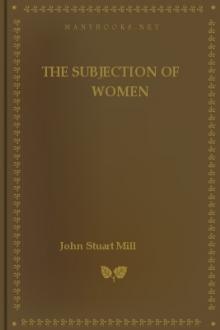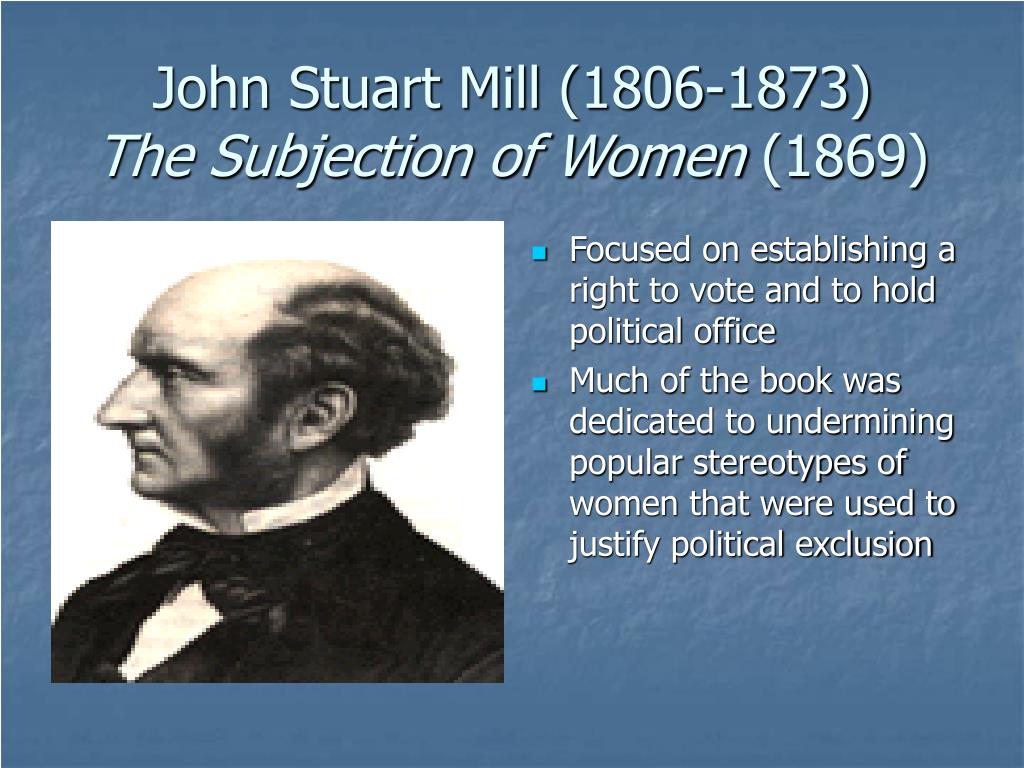

Women's inability to control the fate of her own property or children, and lack of recourse when under a tyrannical husband practically mean they have no rights.

The only solution is to allow the "free play" of women's nature and extend to women the individual liberty to choose what they might think and do.Ĭhapter 2: In this chapter Mill argues that the legal subordination of women makes wives (in a legal sense) occupy a lower situation than slaves. Finally, Mill refutes arguments that it is natural for women to prefer the station of wife/mother, since it's really impossible, at the present time, for men to "know" the truly natural differences between men and women: women have been socialized and educated in such a way as to subordinate their own interests to those of men. Additionally, modern society has generally accepted that a person's birth should not determine his station in life, but Mill points out that the subordination of women because of their gender is a sad exception. Mill begins by enumerating the difficulties of undertaking on such an argument, primarily because the subordination of women's interests is such a "universal custom." Mill goes on to argue that the basis for this "custom" is theory and certainly not experience, and its only source is the " law of the strongest"-a law, he points out, which modern society has generally repudiated in other cases like slavery. The work was not published, however, until 1869, a more favorable time, he felt, for the receipt of his ideas.Ĭhapter 1: The first chapter doesn't so much get into the argument against the subjection of women, but rather seems to clear a space for the argument. The Subjection of Women was written two years after Harriet's death in the winter of 1860-61, and Mill acknowledged the help of his step-daughter, Helen Taylor.


While Mill's relationship with Harriet Taylor here seems to need foregrounding, Mill's belief in the equality of the sexes certainly preceded the relationship, and is consistent with his larger arguments on individual liberty.


 0 kommentar(er)
0 kommentar(er)
